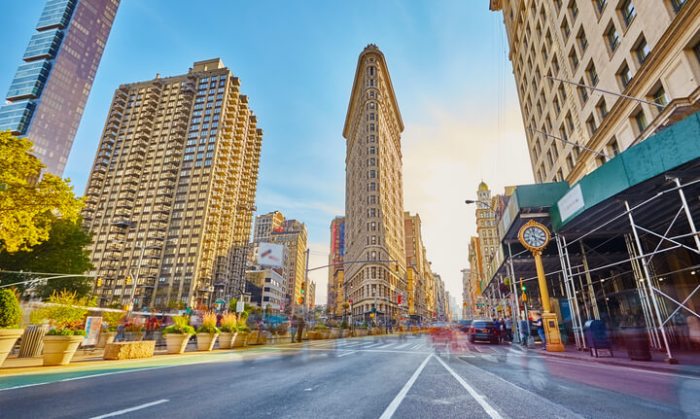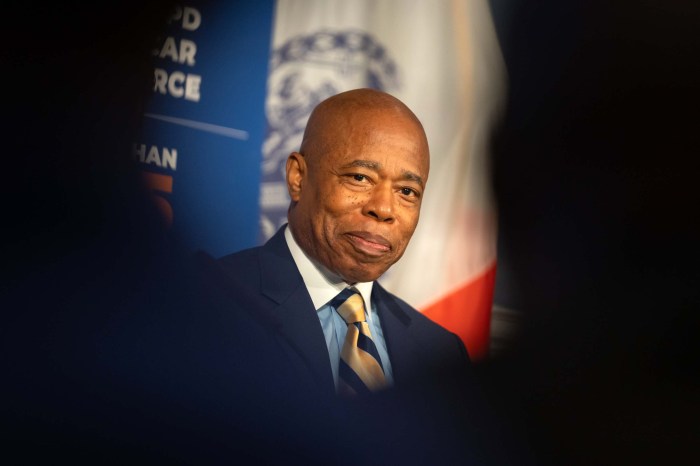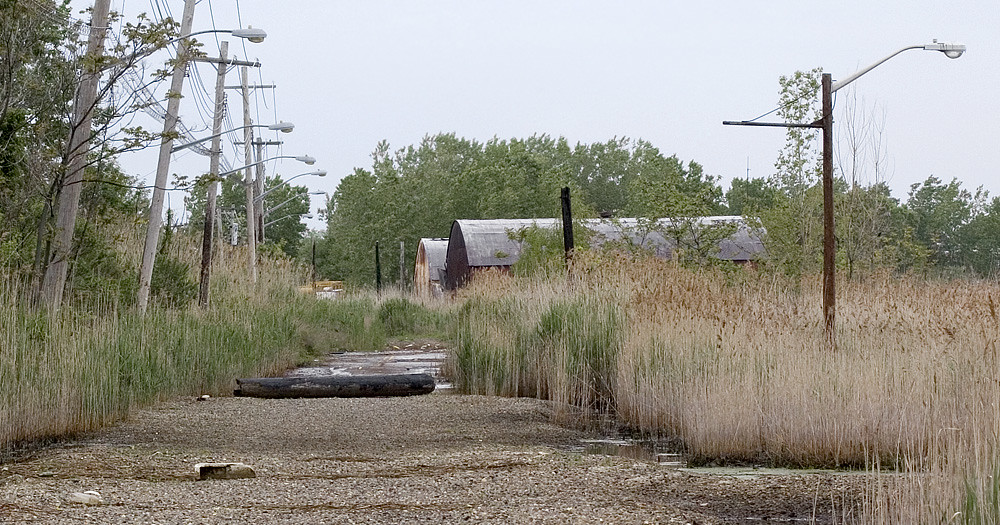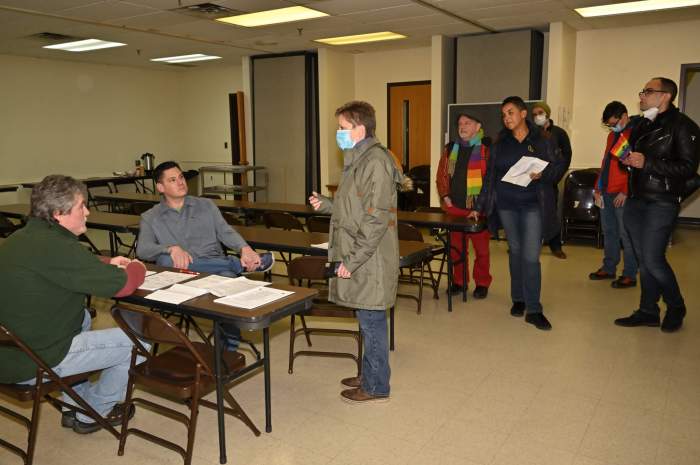New York’s approval of same-sex marriage in an eleventh-hour vote on Friday night was a historic moment in human rights for this state, this country and, yes, the world.
It was 42 years ago this month that the modern gay rights movement was born in Greenwich Village, when gays fought back against police trying to raid the Stonewall Inn. On Sunday, when Governor Andrew Cuomo, joining his first Gay Pride March, strode down Christopher St. past the famous bar, the cheers and applause were absolutely deafening. It was a euphoria that is hard to describe — the emotional outpouring of joy, gratitude, relief, tears — finally to be recognized as fully equal.
The Declaration of Independence states that we are all created equal, with basic, inalienable rights, including “the pursuit of life, liberty and happiness.”
The state Senate’s narrow vote in favor of same-sex marriage will now allow gays and lesbians to enjoy, at last, the same happiness of marriage as heterosexuals. Fully equal.
Tremendous credit, of course, goes to Cuomo for having the strength of will to push for a vote on the gay marriage bill, and for making sure that all the votes in the state Senate were there. He was able to pull over just enough Republicans to vote Yes. Suddenly, with the stunning win on gay marriage, and his achievements on a host of other issues, from the state budget to the renewal of rent protections, Cuomo has become a political figure of national stature, even a possible 2016 presidential candidate. Seizing the moment, he had the political acumen and the conviction to push gay marriage through to approval.
No doubt, there will be a ripple effect from New York’s action, which has made us the country’s sixth and largest state to have gay marriage. It’s likely other states will now follow suit.
In the meantime, same-sex marriage will be an economic boon for New York, without a doubt, as gay New Yorkers and many out-of-staters alike will choose the Empire State to tie the knot.
Some have raised concerns that last-minute modifications to the bill providing “carve-outs” to religious groups and their affiliated nonprofit organizations were unneeded because they are already covered by existing protections, including the state Constitution. Under these regulations, religious groups would not be forced to open their facilities to gay marriages or wedding parties. However, it seemed pretty clear that the gay marriage bill would not have passed without these modifications. It hasn’t been clearly spelled out how these carve-outs threaten civil rights in any way.
The new law is unlikely to be overturned by a referendum, as was the case in California, given the difficulty of getting a statewide petition on the ballot in New York, and the fact that the Legislature is the only body that could initiate a referendum. Also boding well for gay marriage’s future here, a new Quinnipiac Poll finds that New York State voters under age 35 support it by 70 to 26 percent.
History was made last Friday night in New York State. In three weeks, gays and lesbians will be able to wed here.
Although civil unions share many of the rights of marriage, they do not share all, and marriage implies something different — it implies equality. If it’s marriage, then call it marriage — for everyone.
The pride was high in Greenwich Village and along Fifth Ave. on Sunday. It still seems a bit like a dream as the reality is still sinking in. But a dream has been achieved, and is now real. Once again, New York is a leader on gay rights. It’s a moment to be immensely proud.



































